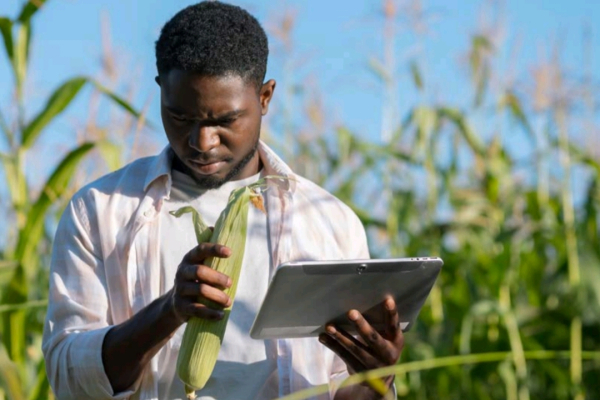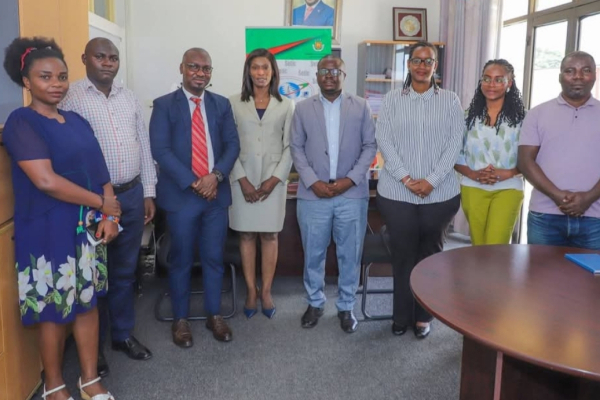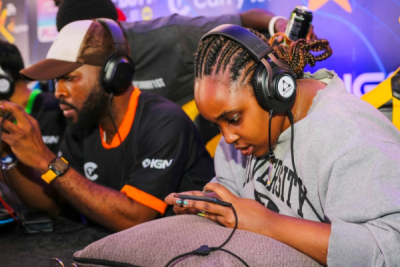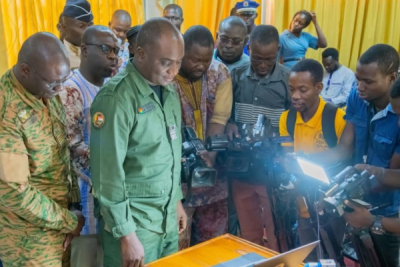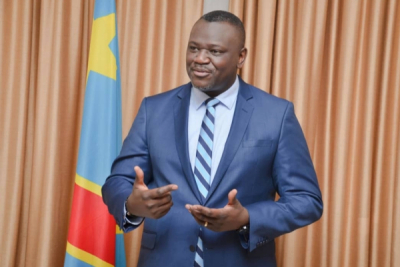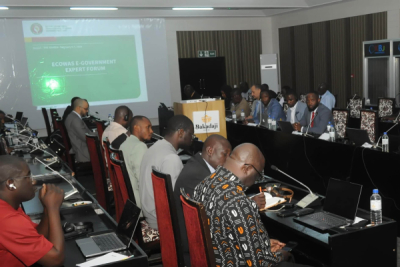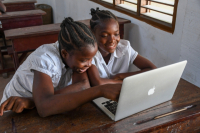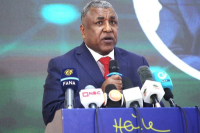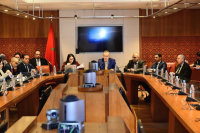
Tech (1152)
As Africa undergoes a digital transformation, the continent is strategically positioning itself to leverage the opportunities of artificial intelligence. To this end, Morocco, Kenya, and Nigeria have partnered to launch an initiative promoting AI for the public good.
Smart Africa, an alliance of 40 African countries overseeing the continent's digital agenda, said on Wednesday it will officially launch the African Artificial Intelligence Council (AI Council) in April 2025. The announcement comes ahead of the Global AI Summit on Africa, slated for April 3-4 in Kigali, where council members will be appointed. The exact number of members has not yet been disclosed.
The AI Council will bring together policymakers, business leaders, and key players in the AI ecosystem. Its mission is to drive digital transformation, foster innovation, and develop policies aimed at accelerating Africa’s digital economy.
According to Smart Africa, the council will promote collaboration, knowledge-sharing, and innovation to position Africa as a strategic player in the global AI landscape. It will also work to ensure that AI technologies are leveraged in a way that benefits all sectors of society and supports inclusive growth.
The initiative was first announced during the High-Level Meeting on Artificial Intelligence for Africa, held in Rabat, Morocco, on February 4, 2025. Ahead of its official launch, stakeholders also met on the sidelines of the AI Action Summit in Paris from February 10-11. Further consultations are planned during the Mobile World Congress in Barcelona from March 3-6.
This initiative comes as African nations seek to capitalize on AI, a technology that could add $2.9 trillion to the continent’s economy by 2030—equivalent to a 3% increase in annual GDP, according to the GSMA. The organization highlights AI’s potential to support the Sustainable Development Goals by providing innovative solutions for more inclusive and sustainable development, particularly in critical areas.
However, GSMA also points to several challenges that must be addressed for Africa to fully harness AI’s potential. These include low mobile internet adoption, a persistent digital divide, insufficient digital skills, a lack of regulatory frameworks, limited research capacity, weak energy infrastructure, and ethical and security risks. Additionally, there is a shortage of AI solutions tailored to the continent’s specific challenges.
By Isaac K. Kassouwi,
Editing by Sèna D. B. de Sodji
Like many African countries, Burundi has made digital transformation a key driver of its economic and social development. However, the country struggles to finance its various projects.
Burundi is exploring partnerships with the International Finance Corporation (IFC) for digital projects. An IFC delegation met with the Burundian Executive Secretariat for Information and Communication Technologies (SETIC) on Monday to discuss the matter.
The initiative aligns with Burundi’s vision of becoming an emerging country by 2040 and a developed nation by 2060, with digital technology as a key development driver. The government aims for a "technological leap" to boost economic growth by fostering business activities within a secure legal framework leveraging ICT.
In January, the Senate unanimously ratified the East African Community (EAC) protocol on ICT networks, facilitating stronger cooperation with neighboring countries to accelerate digital sector development. In November 2024, Burundi signed a memorandum of understanding with Vietnam to deepen collaboration in this area. The World Bank launched the $92 million Digital Economy Foundations Project (PAFEN) in September 2024 to support Burundi’s digital infrastructure.
Despite these efforts, Burundi ranks 46th out of 47 African countries in the International Telecommunication Union’s (ITU) 2024 ICT Development Index, with a score of 24.4 out of 100. The country’s internet penetration rate is 19%, mobile broadband coverage is 8.3%, and mobile phone usage is 25.6%. Only 50.6% of the population has at least 3G coverage, and 32.2% has 4G. The UN Department of Economic and Social Affairs (UN DESA) classifies Burundi as having a low e-Government Development Index (EGDI) of 0.2480 out of 1, significantly below the global average of 0.6382.
Details of the SETIC-IFC discussions remain unclear. No official agreement has been signed or announced, leaving the scope and implications of the potential collaboration uncertain.
By Isaac K. Kassouwi,
Editing by Sèna D. B. de Sodji
Mobile video games are experiencing rapid growth in Africa, driven by a tech-savvy youth and widespread access to digital technologies. This dynamic sector presents a significant opportunity for innovation, entrepreneurship, and economic development across the continent.
Sonatel, a subsidiary of French telecom group Orange, and Netgem, a digital entertainment solutions provider, announced on Wednesday the launch of Wido Games, West Africa's first cloud gaming platform. The service will be available to Sonatel subscribers later this month.
"With this partnership, we are proud to launch the first Cloud Gaming service in West Africa with a simple promise: a console gaming experience on any device, powered by the strength of our network," said Malick Dary, Sonatel’s Director of Consumer Marketing.
The launch comes amid rapid expansion of digital infrastructure in West Africa, including investment in high-speed technologies, and a booming video game industry. Sonatel, which has invested nearly 263 billion CFA francs ($416 million) in network expansion, continues to seek new ways to meet the growing demand for digital entertainment.
Wido Games represents a major step forward for cloud gaming in Africa, a continent experiencing remarkable growth in mobile gaming. A February 5 study by African game publisher Carry1st and market research firm Newzoo showed Africa’s mobile gaming market reached $1.8 billion in 2024, a 12.4% increase from 2023. This growth rate significantly outpaces the global industry’s 2.1% growth in 2024.
Wido Games will allow players to enjoy console-quality gaming on their smartphones, with PC compatibility planned soon, without the need for expensive gaming equipment. Sonatel’s high-speed network, including 5G coverage, is expected to provide a smooth, lag-free experience.
By Samira Njoya,
Editing by Sèna D. B. de Sodji
The rapid expansion of digital services across Africa has led to a surge in online attacks, jeopardizing the security of individuals and businesses. Addressing these growing cyber threats requires immediate action.
Burkina Faso launched a new online platform, “Alerte-BCLCC,” on Tuesday to allow citizens to report cybercrimes and flag online content promoting terrorism. The platform, accessible at alerte.bclcc.gov.bf and available for download on Play Store (Android) and AppGallery (Huawei), was launched by the Ministry of Security through its Central Brigade for Combating Cybercrime (BCLCC).
"With this tool, our specialized forces will be able to intervene more quickly, analyze trends more effectively, and strengthen actions to combat these new forms of cybercrime," said Mahamadou Sana, Minister of Security, urging Burkinabè citizens to use the platform.
The initiative is part of the government’s efforts to strengthen national cybersecurity amid rapid digital transformation, including increased use of electronic communication services and a rise in cyberattacks. According to national authorities, cybercriminals extorted more than 3 billion CFA francs (approximately $5 million) from Burkinabè citizens between 2020 and 2023.
Last November, Burkina Faso approved a National Cybercrime Strategy (2025-2029) to modernize its tools for combating digital threats.
The “Alerte-BCLCC” platform ensures user data confidentiality, allowing for anonymous and secure incident reporting. Users can transmit essential information to the BCLCC with a few clicks, enabling rapid and targeted interventions. The system reflects Burkina Faso’s commitment to protecting its citizens in cyberspace and adapting to evolving security challenges.
By Samira Njoya,
Editing by Sèna D. B. de Sodji
In Africa, digital identification is crucial for socioeconomic development. Many countries face challenges with financial inclusion and public service management, and are reforming their systems to provide citizens with secure, interoperable digital IDs.
The Democratic Republic of Congo (DRC) is moving forward with plans for a national digital identification system. DRC Minister of Posts, Telecommunications, and Digital Affairs Augustin Kibassa Maliba met on Monday in Singapore with Soon Huat Lim, CEO of Trident Digital Tech Holdings Ltd., a Singaporean digital transformation company, to discuss the technical and operational aspects of deploying the system. The meeting is a key step before the anticipated signing of a collaboration agreement that will launch the project.
"We recognize that digital or electronic identification is one of the pillars of e-government," said Kibassa Maliba. "I took note of the CEO’s remarks about forming a commission to oversee the work since digital operations fall under the ministry’s responsibility. However, when it comes to identity, it is essential to involve other institutions so we can ensure a unified government vision for the development of the digital sector."
The initiative is part of the DRC's National Digital Plan Horizon 2025, reflecting President Félix Tshisekedi’s goal of making the DRC a leading digital player in Africa. The plan envisions digital technology as a driver of integration, good governance, economic growth, and social progress.
The Monday meeting follows a preliminary agreement signed in December between the DRC and Trident Digital Tech Holdings Ltd. That agreement established the groundwork for a partnership to develop and implement a platform for managing digital identities and citizen data.
Once operational, the DRC's system will join other African nations that have adopted or are developing digital identification frameworks, including Nigeria’s National Identity Management System (NIMS), Ghana’s National Identification Authority (NIA), and Rwanda’s e-ID system. These initiatives aim to improve public service efficiency, strengthen data security, enhance access to financial services, and promote digital and economic inclusion.
By Samira Njoya,
Editing by Sèna D. B. de Sodji
Digital transformation has emerged as a key driver of economic and social development worldwide. In West Africa, it is now a crucial tool for strengthening governance, improving public services, and promoting digital inclusion.
The Economic Community of West African States (ECOWAS) plans to make digital transformation as a key driver of inclusive and sustainable development across its member states. To accelerate its efforts in that direction, the institution is betting on the World Bank-backed West Africa Regional Digital Integration Project (WARDIP).
This commitment was underscored at the ECOWAS Experts Forum on E-Government, held in The Gambia on February 6-7. The forum convened experts from member states and United Nations representatives to discuss the progress and future of e-government in the region.
Discussions focused on analyzing findings from the UN's 2024 E-Government Survey and enhancing data governance expertise. Participants explored critical areas including digital identity, system interoperability, data management, and developing citizen-centric digital content.
This initiative is in line with ECOWAS Vision 2050 and the 2023-2027 Community Strategic Framework, both of which champion inclusive and sustainable development. The ECOWAS Commission aims to establish information and communication technologies (ICTs) as vital engines for economic growth and social inclusion. The ultimate goal is a unified West African digital market, promoting shared prosperity and boosting key sectors like e-commerce, e-health, smart agriculture, and online education.
However, significant challenges remain. ECOWAS nations must address coordination gaps between government institutions, inadequate digital infrastructure, a shortage of specialized digital skills, and growing data protection and cybersecurity concerns. To overcome these hurdles, the Commission is urging greater engagement from digital ecosystem stakeholders, stronger regional cooperation, and increased investment to ensure a successful and sustainable digital transition across the region.
Samira Njoya
Education systems worldwide face significant challenges, including limited access, geographic disparities, and disruptions caused by social unrest or security crises. To address these issues and ensure inclusive education, innovative solutions like remote learning are crucial.
The Democratic Republic of Congo (DRC) signed a historic decree regulating distance learning for primary, secondary, and technical education, the Ministry of National Education and New Citizenship announced on Wednesday. This initiative is part of a broader effort to modernize the Congolese education system, making it more inclusive and accessible to all, in line with President Félix-Antoine Tshisekedi Tshilombo’s vision.
"Through a multimodal model combining digital platforms, radio, television, and offline materials, this decree ensures that all students, including those in low-connectivity areas, can continue their education. This is a decisive step toward educational equity and reducing territorial inequalities,” the ministry said in a statement.
The decision comes at a time when the eastern part of the country is facing significant security challenges, including armed conflicts that hinder access to education for many children. According to UNICEF, approximately seven million children did not return to school for the 2023-2024 academic year due to factors such as poverty, lack of infrastructure, child labor, and, in some regions, ongoing instability.
Distance learning is thus emerging as a strategic solution to ensure education continues despite these obstacles. Moreover, this approach will help prepare Congolese youth for the challenges of the 21st century by fostering essential skills such as autonomous learning and digital literacy. UNESCO highlights that distance learning strategies strengthen the resilience of the education sector, offering opportunities to bridge the gap between rural and urban populations.
By Samira Njoya,
Editing by Sèna D. B. de Sodji
African agriculture still faces numerous challenges that prevent the continent from achieving food self-sufficiency. Just as mechanization was key to the Industrial Revolution, digital technology in today's Fourth Industrial Revolution offers significant potential to transform the sector. Ethiopia is embracing this potential with an ambitious new strategy.
The Ethiopian government officially launched, on Tuesday, its Digital Agriculture Roadmap (DAR), a national plan to accelerate the digitalization of the agricultural sector, the Ministry of Agriculture said. Developed by the ministry in collaboration with the Agricultural Transformation Institute (ATI), the roadmap will be implemented from 2025 to 2032.
The government aims to enhance agricultural productivity through inclusive, accessible, and sustainable digital solutions, Agriculture Minister Girma Amente said. The strategy is designed to facilitate access to agricultural extension services via smartphones, improve input availability, strengthen financial services such as loans and agricultural insurance, and enhance coordination across the entire value chain, from production to commercialization, he said.
The DAR rollout will occur in two phases. The first, from 2025 to 2029, will focus on establishing basic digital infrastructure and developing priority services for agriculture. The second, from 2030 to 2032, aims to expand and diversify the digital ecosystem across the sector.
Authorities acknowledge that Ethiopia’s agricultural digitalization faces significant challenges, particularly limited connectivity and a lack of digital skills, which could slow technology adoption.
According to the report Driving Digital Transformation of the Economy in Ethiopia: Opportunities, Policy Reforms and the Role of Mobile, published by the GSMA in October 2024, 76% of Ethiopians still do not use mobile internet.
GSMA also estimates that smartphone penetration, a key tool in the DAR, stands at just 36% in Ethiopia. Additionally, the association rates the population’s proficiency in basic digital skills at 41 out of 100.
By Stéphanas Assocle,
Editing by Wilfried ASSOGBA
Morocco's e-government journey began in 2013 with the Maroc Numérique Plan and advanced in 2020 with the Maroc Digitale Strategy. By 2030, the government aims to accelerate this progress, creating a more efficient administration.
Morocco plans to launch its digital public services portal, e-services, on February 14, 2025, according to local media reports. Amal El Fallah Seghrouchni, the Minister Delegate in charge of Digital Transition and Administrative Reform, made the announcement on Tuesday before the Public Finance Control Committee at the House of Representatives, the reports said.
The online portal already centralizes around 600 public services, including more than 300 for citizens, about 200 for businesses, and nearly 100 for public administrations. The goal is to improve access to administrative services by streamlining procedures and reducing processing times.
The initiative is part of the Digital Morocco 2030 strategy, unveiled in September 2024. According to the United Nations, Morocco currently scores 0.5618 out of 1 on the Online Service Index, part of the E-Government Development Index (EGDI). The country ranks 100th globally and 11th in Africa, with ambitions to break into the global Top 50 by 2030.
The portal's launch is expected to facilitate interactions between citizens and the administration, improve access to essential services, and contribute to better digital governance. The Digital Morocco 2030 strategy document states that processing times for requests should be reduced by 50%, the reports added.
By Adoni Conrad Quenum,
Editing by Feriol Bewa
Google and the IFC project that Africa's digital economy will make up 5.2% of the continent's GDP by 2025. While this potential attracts some tech companies, others are strategically pulling back.
IBM is ending operations in Nigeria, Ghana, and other key African markets, transferring its regional functions to MIBB, a subsidiary of Midis Group, a multinational IT and telecommunications conglomerate, effective April 1, the company said. The transfer will also affect 34 other African countries where IBM has a presence.
"IBM are partnering with MIBB to launch an alternative operating model, and are still committed to doing business in Africa, this new operating model shows a strong commitment by IBM to a continued focus in Africa. IBM will continue to invest and innovate in Africa, including through the ongoing development of the industry’s most cutting-edge AI and hybrid cloud technology to ensure the success of our clients," IBM said in a statement.
IBM, present in Nigeria for over 50 years, has provided infrastructure and consulting services to critical industries such as banking, telecommunications, oil, gas, and government. The company cited growing competition from companies like Dell and Huawei, combined with global financial challenges, as factors in the repositioning.
In 2024, IBM's consulting business revenue declined 2% to $5.18 billion, while infrastructure sales dropped 8%, the company reported. Overall revenue increased 1% to $17.55 billion, driven by a 10% rise in software sales to $7.92 billion. Its exit comes as cloud adoption expands rapidly across Africa. A Telecom Advisory Services study commissioned by AWS projects cloud usage in Nigeria to triple over the next decade, potentially contributing $30.2 trillion to the country's economy by 2033.
MIBB will take over operations, support, and local client relations while marketing IBM’s products and services, including software, hardware, cloud, and consulting, the company said.
By Samira Njoya,
Editing by Sèna D. B. de Sodji
More...
Blockchain, an innovative and decentralized technology, opens up vast opportunities for Africa, particularly in securing transactions and improving transparency. Exploring this technology is of strategic importance for the continent's development.
Guinea's Minister of Posts, Telecommunications, and the Digital Economy, Rose Pola Pricemou (photo), met on Monday with a delegation from cryptocurrency firm Tether Limited to discuss potential collaboration on driving innovation and technological development in the country, the ministry said.
Discussions focused on developing innovative technology solutions, promoting blockchain training, and implementing awareness programs through digital hubs. The initiative aims to foster an innovation-friendly environment and strengthen synergies among digital sector stakeholders.
The potential partnership comes as Guinea undergoes rapid digital transformation, including the imminent launch of the Cité des Sciences et de l’Innovation de Guinée (CSIG). Under construction since July, the CSIG aims to become a West African hub of excellence for innovation. The collaboration with Tether is intended to enhance blockchain understanding and promote the technology among entrepreneurs, startups, and local institutions.
A recent report by Fortune Business Insights estimated the global blockchain market at $17.57 billion in 2023, projecting it to reach $825.93 billion by 2032, representing a compound annual growth rate (CAGR) of 52.8%.
By Samira Njoya,
Editing by Sèna D. B. de Sodji
Global cooperation in space is booming, with countries sharing technology, data, and know-how. The Republic of Congo, with Kazakhstan's help, is working to boost its tech skills and better manage its resources.
The Republic of Congo and Kazakhstan signed an investment agreement on Tuesday to develop a high-resolution Earth observation satellite system, Kazakhstan’s Ministry of Digital Development, Innovation and Aerospace Industry said.
The signing ceremony, held at the ministry, was attended by representatives from JSC NC Kazakhstan Gharysh Sapary, the Kazakh space agency, and a Congolese delegation.
"In addition to the satellite platform, Kazakhstan offers a comprehensive solution, including training and knowledge transfer. Kazakhstan is strengthening its position as a center for technological development, and international partners trust our solutions. This is already the second successful export, confirming the high level of the domestic space industry," said Zhaslan Madiyev, Kazakhstan’s Minister of Digital Development, Innovations, and Aerospace Industry.
The agreement follows a joint roadmap signed on August 2, 2024, outlining strategic priorities for the collaboration and aligns with Congo’s strategy to diversify its technological partnerships and use space technology to address challenges including national security, natural resource management, agricultural monitoring, environmental protection and urban planning.
The Republic of Congo joins an international network of Earth observation satellites alongside countries like Mongolia. Once in orbit, the satellite will significantly improve forest monitoring, natural disaster management, agricultural activity tracking and urban infrastructure planning, the ministry said. The resulting data exchange and scientific cooperation will drive technological innovation, strengthening Congo’s digital sovereignty in a rapidly expanding strategic sector.
According to Mordor Intelligence, the global remote sensing satellite market was valued at $43.36 billion in 2024 and is projected to reach $76.88 billion by 2029, growing at an annual rate of 12.14% over the forecast period.
By Samira Njoya,
Editing by Sèna D. B. de Sodji
In today's digital world, AI is crucial for business growth. To remain competitive, small and medium-sized enterprises (SMEs) need to adopt these technologies, boosting both innovation and efficiency.
The General Confederation of Moroccan Enterprises (CGEM) announced, yesterday, the launch of “Génération AI: Booster 1000 PME Marocaines,” a program to help 1,000 Moroccan small and medium-sized enterprises (SMEs) adopt artificial intelligence. Developed in partnership with the European Bank for Reconstruction and Development (EBRD) and LinkedIn, the initiative will provide access to specialized AI training.
Through this program, entrepreneurs will receive LinkedIn learning licenses, enabling them to acquire essential AI skills and leverage its opportunities. In addition, several training modules will be made available, covering strategic topics such as innovation, sustainable development, and digital transformation. These individual and non-transferable licenses will remain valid until September 2025.
The initiative comes at a time when digital transformation is becoming a key driver of competitiveness for Moroccan businesses. A report published on May 30 by consulting firm PricewaterhouseCoopers (PwC) revealed that 27% of surveyed African business leaders stated their companies had already adopted generative AI, compared to a global average of 32%. The study, conducted across 105 countries, was based on a survey of 380 African executives, highlighting the continent’s relative lag in AI adoption.
By enhancing entrepreneurs’ skills, “Génération AI” aims to accelerate Morocco’s digital transformation. Supported by the Association des Femmes Entrepreneurs du Maroc (AFEM) and Technopark, the program seeks to have a significant impact on the country's business ecosystem. By facilitating AI adoption and helping SMEs upskill, this initiative could play a crucial role in integrating emerging technologies, driving growth and competitiveness for Moroccan businesses in the digital era.
By Samira Njoya,
Editing by Sèna D. B. de Sodji
Digital transformation and cybersecurity have become central to national security strategies worldwide. Strengthening ICT infrastructure and digital security capabilities can significantly enhance military operations, disaster response, and secure communication networks.
On January 30, 2025, the Director General of the Zambia Information and Communications Technology Authority (ZICTA) Collins Mbulo met with Zambia Army Commander Lieutenant General Geoffrey Choongo Zyeele to explore areas of collaboration, focusing on ICT infrastructure, cybersecurity, and digital solutions for military and national defense needs.
Lt. Gen. Zyeele welcomed the strong partnership between the two institutions, emphasizing the need for proactive collaboration in tackling national security challenges in an increasingly digital world. “I have no doubt that your institution shall continue to positively impact on my organisation’s achievement of my vision towards modernisation in this technological environment,” he said.
The Zambia Army Commander also urged ZICTA to encourage mobile network providers to expand coverage in areas where the Army has a significant presence, improving communication and operational efficiency.
To further strengthen cooperation, Engr. Mbulo proposed establishing regular communication channels for knowledge-sharing on spectrum management and cybersecurity, ensuring both institutions are equipped to address emerging digital threats.
The World Bank’s Digital Economy Diagnostic Report highlights Zambia's notable progress in digital transformation, particularly in digital infrastructure, financial services, and platforms. As the country advances technologically, the Zambia Army's participation in digital initiatives is expected to accelerate the adoption of advanced technologies in defense operations, enhancing national security and operational efficiency.
The collaboration between ZICTA and the Zambia Army highlights the growing intersection of ICT and national security, reinforcing Zambia’s commitment to leveraging technology for defense, connectivity, and digital innovation.
Hikmatu Bilali


